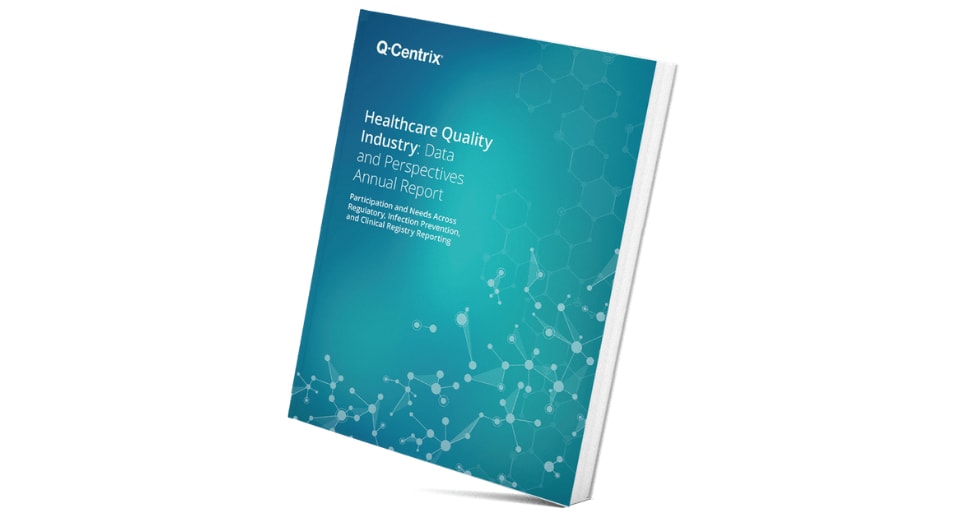Although there are some regular studies of the government’s healthcare quality initiatives and various surveys of health execs’ concerns about meeting quality requirements, there is a lack of openly available information on quality reporting trends across government and non-government programs. Because we at Q-Centrix always love a good challenge and view this elusive information as critical to operational decision-making for healthcare organizations, we put out a new report to help fill this gap.

The Healthcare Quality Industry: Data and Perspectives Annual Report explores quality program participation across three main reporting areas: regulatory, infection prevention, and clinical registries.
You may have read in the industry media that the report shows there’s an overall increase in quality program participation, including in value-based care. Or, how it highlights resource shortages, such as a potential need for more infection preventionists. While these are telltale signs of change across the industry, the report really stands out in looking at the growth and evolution of clinical data registries in the quality space.
So, Brian, what are you getting at? … Well, the report reveals several interesting trends around registries. We’re seeing participation in these programs grow faster than previously anticipated – and some clues as to why this is. This includes useful information about how registries are changing and what it may mean for hospitals and providers.
The following are a few of the enlightening trends in the report:
- The cumulative number of registry participation instances across the 20 largest registry programs is projected to grow annually by 7% until 2021.
- Certain registries are intensifying data collection requirements, which increases the complexity of registry participation, while at the same time average costs per hospital on registry abstraction services are rising.
- The top five most-participated-in registries address either cancer or heart disease, suggesting many hospitals and healthcare providers are looking to registries to improve outcomes for those inflicted with our nation’s deadliest diseases.
Based on these findings and our direct experience with registry reporting, our belief is that registries are becoming increasingly essential to not only healthcare quality improvement, but other critical operational aspects of healthcare organizations … And when we feel strongly about something, we do things like writing more blog posts … Well, that’s not all we do, but it’s one thing we can do … Because we feel a responsibility to keep hospitals informed as best we can. So, when we have something valuable to share that everyone can benefit from, we do it. Hence, in the coming months, we will dedicate a series of posts to the relationship between registry participation and each of the following:
- Reputation management;
- Physician recruitment;
- Leverage in negotiations with payers; and
- Cost savings.
We’ll be sure to spread the word when we have new posts on this topic, so keep an eye out for our email alerts and heads-ups on Twitter and LinkedIn!